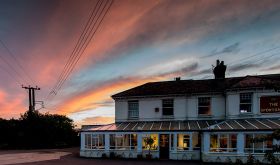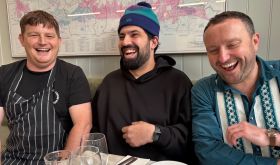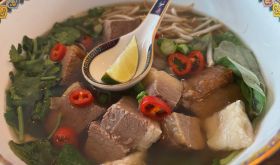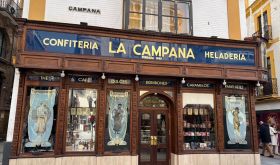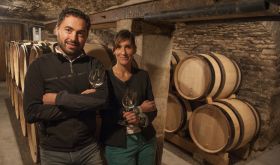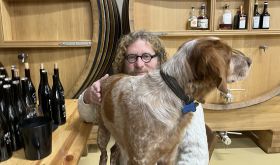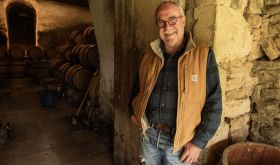The restaurant market in Moscow is phenomenal. Any keen restaurant-goer who has visited the rapidly-developing Russian capital recently will undoubtedly be impressed by the quantity, choice and design of its restaurants. But this very specific opinion comes from a 41 year old Frenchman, Guillaume Rochette, who has spent the past five years finding the best chefs and managers from around the world to work in Moscow and the past two years acting as a ‘concept finder’ to enable Russian restaurateurs to open their own branches of successful overseas restaurants.
Rochette goes even further. “I think that Moscow has managed to absorb in the last seven years what it took London and New York 20 years to experience and digest. In 10 years’ time Moscow will be one of the most exciting restaurant cities in the world, alongside London, New York, Sydney, Shanghai and LA.” The US $50 million restaurant, whose name still remains a secret, which Moscow restaurateur Andrei Dellos will open in September – Chinese and Japanese food served in a mock Venetian palace built with more skilful craftsmanship, Rochette claims, than has been seen in a public space for decades – is just one example of what he believes this city has in store.
Rochette’s role in Moscow’s restaurant revolution came about through three lucky breaks. The first was 20 years ago, shortly after he had come from his birthplace, the champagne town of Rheims in northern France, to learn English. Working briefly as a barman in a pub at King’s Cross, he found his ability to remember his customers’ drinks so impressed one woman that she invited him for a job interview. So began his career as a restaurant head hunter, placing the best chefs, general managers, operations and finance directors for hotels, restaurants and retail developments around the world.
“My business, Eureka Executive Search, was doing fine until 9/11 when suddenly the phones stopped ringing. I remembered that a French chef who was then working in Moscow had been nagging me to come over there because there was just so much going on. So I bought myself a cheap plane ticket and went out and found what was, effectively, a brave new world.”
But Rochette is the first to admit that his luckiest break was that he had by then established a successful business in London rather than his native France. “I am very proud to be French and I am in awe of what successful French restaurateurs and chefs achieve in spite of their bureaucracy and legislation. But there is no doubt that today London and New York are by far and away the most exciting restaurant cities in the world.”
Initially, Rochette placed senior management but then, with his credibility established, he was introduced to the city’s biggest players, Andrei Dellos who operates over 20 restaurants including the atmospheric (if totally reconstructed) Café Pushkin and Arkady Nouvikof who runs over 60 restaurants including Moscow’s Vogue Café. “After perestroika their focus was initially on France to drive the luxury food market but France is French food. I remember one evening sitting in Paris with Dellos eating really bad Chinese food and finally persuading him to come to London.”
Rochette’s strategy was facilitated by the numbers. London’s three most conspicuously glamorous restaurants, Nobu, Hakkasan and Zuma, also boast the biggest sales (over £9, £8 and £7.5 million respectively) and all serve Asian food, a style increasingly popular in Moscow with its access to fish and shellfish from its eastern seaboard. Once smitten, the Russians bit very hard.
“Russians are very tough businessmen because everything in life over there has been tough. But in one particular respect they behave just like children. Once they see that someone else has a nice cake they all want it. Russians have already been over to see 50 St James, the new gambling and restaurant operation Robert Earl has just opened in St James’ and gone back with ideas on how to improve what they already run,” Rochette explained. As a result of this acquisitive instinct, his connections, and Moscow’s money, Rochette has put together 20 openings so far. And there is more to follow involving, most recently, signings between Moscow restaurateur Stepan Mikhalkov and Angel Fernandez, long time sous chef to Australia’s renowned Neil Perry, as well as London’s Vineet Bhatia and, in the not too distant future, Moscow’s own Zuma.
Rochette’s Russian business is now evolving in two new directions. The first is working with Russians who want to invest in London’s booming restaurant industry while the second is working with London restaurateurs to tailor-make marketing strategies to entice wealthy, visiting Russians to their tables. But his trips to Moscow look set to continue.
“The big advantages restaurateurs currently enjoy over there are most obviously not just the access to capital but also that labour costs are probably no more than a tenth of what they are in London and construction costs three to five times less. On the downside food and other raw ingredients are more expensive and business at lunchtime is relatively quiet because there simply has not been a culture of eating out either socially or on business at lunch. But that is changing.”
And as it does, so does the focus of Rochette’s search. “Moscow restaurateurs now have many of the chefs and front of house managers they were looking for. What they need, and I have to find for them, are the back of house staff, the operations, sequencing and processing people who are just as crucial in ensuring the customers get the service they expect.”
After two hours of talking passionately about food, restaurants and Moscow, Rochette was profuse in his thanks for my suggestion that we meet. “I have been interviewing people for the last 20 years. It’s lovely to be on the other side of the fence for once.”

